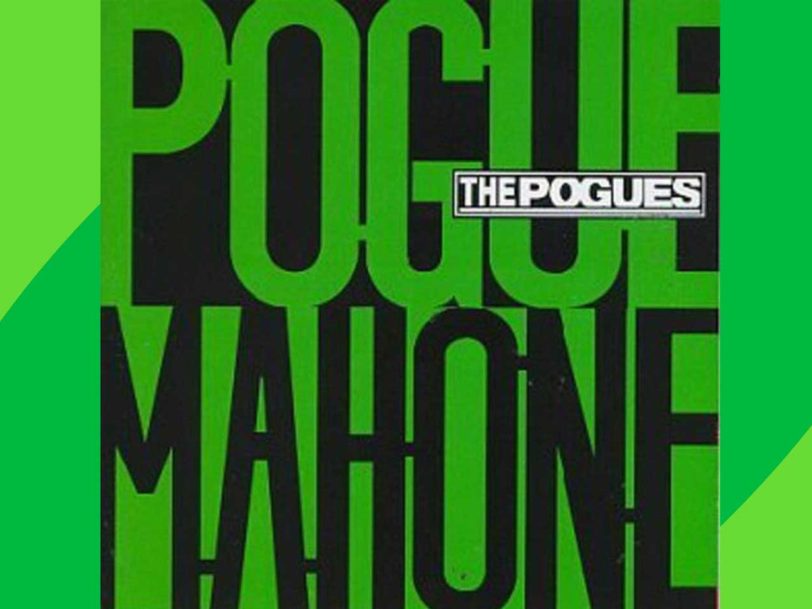In his excellent memoir, Here Comes Everybody,The Pogues’ multi-instrumentalist James Fearnley recounts how emotionally draining Shane MacGowan’s 1991 departure from the group was for all concerned. In hindsight, it’s a wonder how the band managed to regroup and record two further albums, Waiting For Herb and their 1996 swansong, Pogue Mahone, before calling it quits.
Listen to Pogue Mahone here.
Nonetheless, The Pogues did exactly that. After completing the remainder of their post-Hell’s Ditch tour of duty with former Clash singer and longtime Pogues acolyte Joe Strummer assuming frontman duties, the group surprised all and sundry by sounding energised on 1993’s Waiting For Herb: a convincing comeback featuring strong material such as Drunken Boat, Haunting, Smell Of Petroleum and the UK hit single Tuesday Morning.
“We got back to playing songs that were powerful”
MacGowan’s maverick genius was inevitably missed, yet Spider Stacy did a commendable job of moving centre-stage, and while Jem Finer stepped up as the main songwriter in MacGowan’s absence, the rest of his comrades also pitched in, with the credits split evenly throughout Waiting For Herb’s 12 tracks.
However, the band then underwent further personnel upheavals, with guitarist Philip Chevron and The Pogues’ two multi-instrumentalists, James Fearnley and Terry Woods, departing during 1994. Consequently, The Pogues’ four remaining core members – Stacy, Finer, bassist Darryl Hunt and drummer Andrew Ranken – were joined by guitarist Jamie Clark and two versatile new instrumentalists, James McNally and David Coulter, who added a variety of Celtic flavours – including tin whistles, accordion, mandolin and Uilleann Pipes – to the mix on the band’s criminally underrated final album.
“The change of line-up really shook things up”
Though Pogue Mahone isn’t often spoken of in the same breath as The Pogues at their majestic best circa Rum Sodomy & The Lash and If I Should Fall From Grace With God, it’s still an eminently life-affirming finale to their career, even if it does lack Shane MacGowan’s mercurial presence.
The result of sessions with producer Steve Brown, Pogue Mahone (Irish Gaelic for “miss my arse” – the band’s first choice of name) certainly suggests the group were still having a whale of a time, even this late in the day. The rowdier material such as Living In A World Without Her, the boozy swagger of Tosspint and a suitably rambunctious cover of Bob Dylan’s When The Ship Comes In were flecked with the glorious abandon of The Pogues’ debut album, Red Roses For Me, while The Sun And The Moon, Where That Love’s Been Gone and a spirited rejig of Ronnie Lane’s How Come found the band hacking into a seam of agreeably rootsy Celtic pop with which they could easily have struck gold had they continued.




